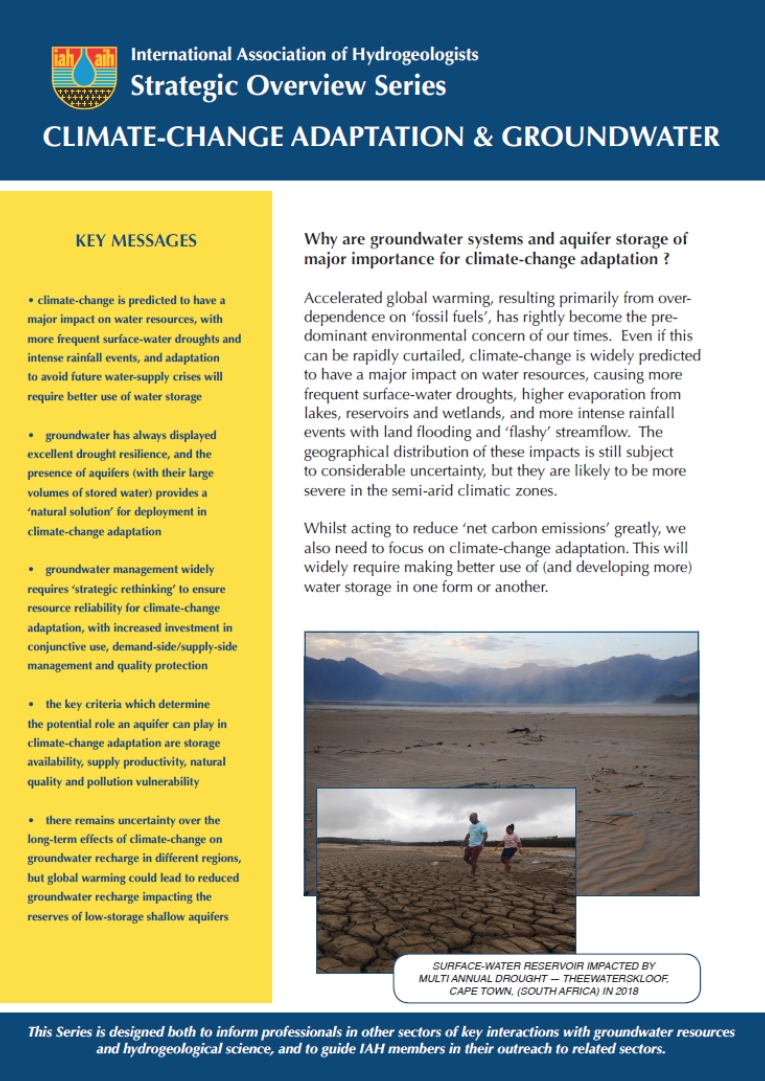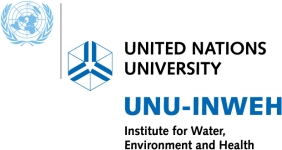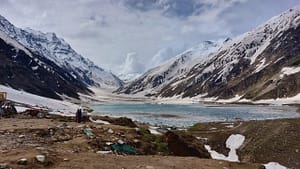Latest edition of the Strategic Overview Series of the International Association of Hydrogeologists
Accelerated global warming, resulting primarily from human overdependence on fossil fuels, is a major environmental concern of our times. Even if it can be rapidly curtailed, climate change is widely predicted to have major impacts on water resources, causing more frequent and severe surface water droughts, higher evaporation losses from lakes, reservoirs and wetlands, and more intense rainfall events with land flooding and flashier streamflow.
 The geographical distribution of these impacts is still uncertain, but they are likely to be more severe in the semi-arid climate zones. While acting to reduce net carbon emissions, we also need to focus on climate change adaptation. This will require making better use of, managing and developing more water storage in various forms. Groundwater generally displays excellent drought resilience, and the presence of aquifers with their large volumes of stored, accessible and often renewable water provides a nature-based solution towards achieving climate change adaptation strategies. Publishing of this new edition in the International Association of Hydrogeologists (IAH) Strategic Overview Series has been led by former IAH President Stephen Foster and a team including Peter Dillon (Australia), Tibor Stigter (Netherlands), Richard Taylor (UK), Bridget Scanlon (USA), Bartolome Andreo (Spain), Seifu Kebede (Ethiopia), Oscar Escolero (Mexico), Makoto Taniguchi (Japan), Franziska Wende (Germany), and Gillian Tyson (UK).
The geographical distribution of these impacts is still uncertain, but they are likely to be more severe in the semi-arid climate zones. While acting to reduce net carbon emissions, we also need to focus on climate change adaptation. This will require making better use of, managing and developing more water storage in various forms. Groundwater generally displays excellent drought resilience, and the presence of aquifers with their large volumes of stored, accessible and often renewable water provides a nature-based solution towards achieving climate change adaptation strategies. Publishing of this new edition in the International Association of Hydrogeologists (IAH) Strategic Overview Series has been led by former IAH President Stephen Foster and a team including Peter Dillon (Australia), Tibor Stigter (Netherlands), Richard Taylor (UK), Bridget Scanlon (USA), Bartolome Andreo (Spain), Seifu Kebede (Ethiopia), Oscar Escolero (Mexico), Makoto Taniguchi (Japan), Franziska Wende (Germany), and Gillian Tyson (UK).
To sign up for GRIPP news and updates, click here.










































